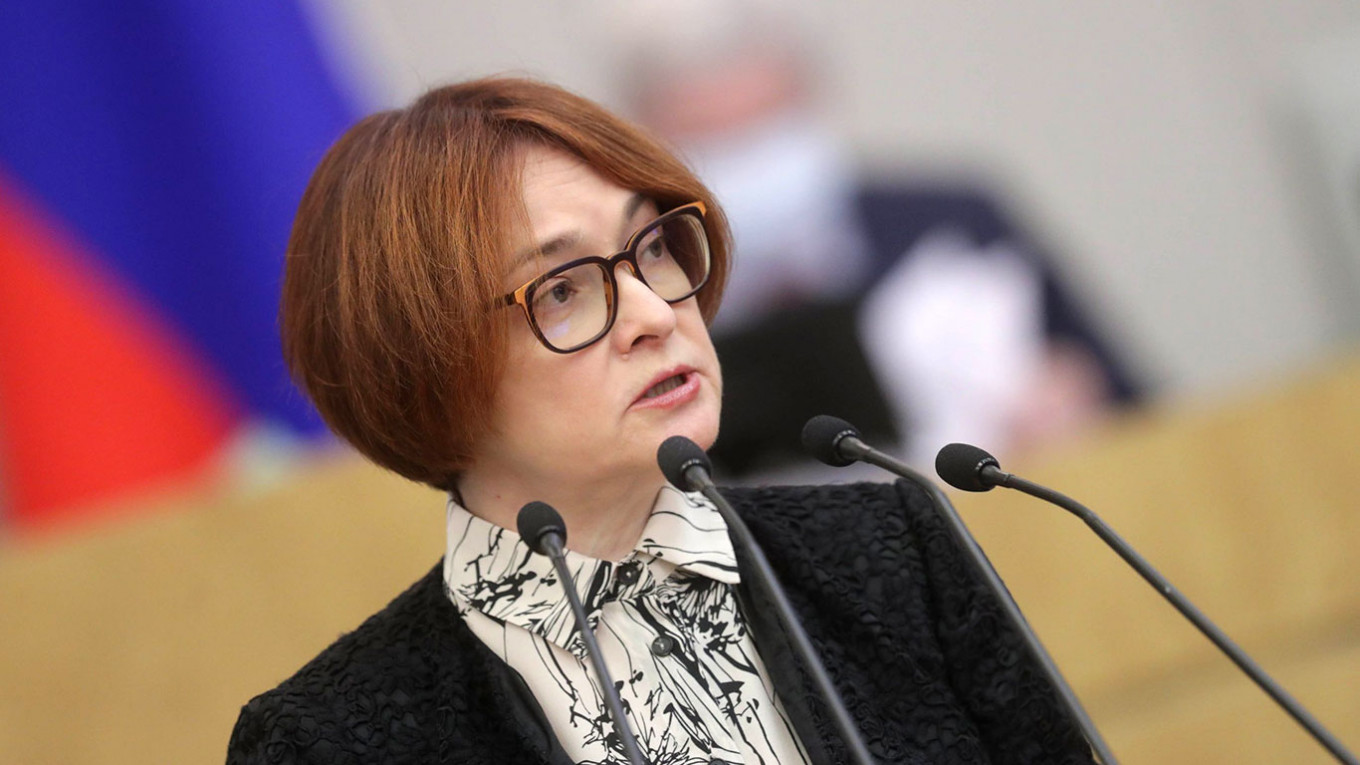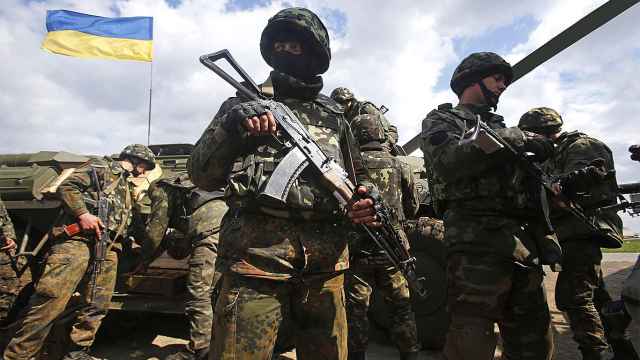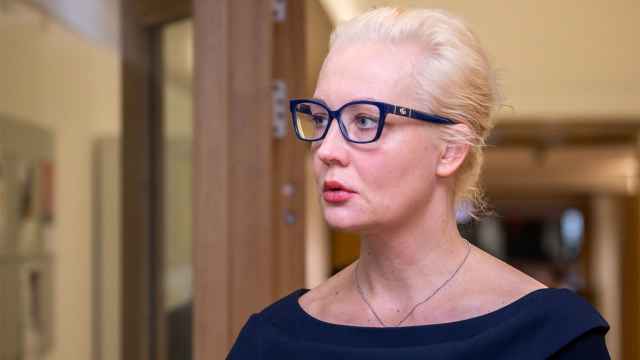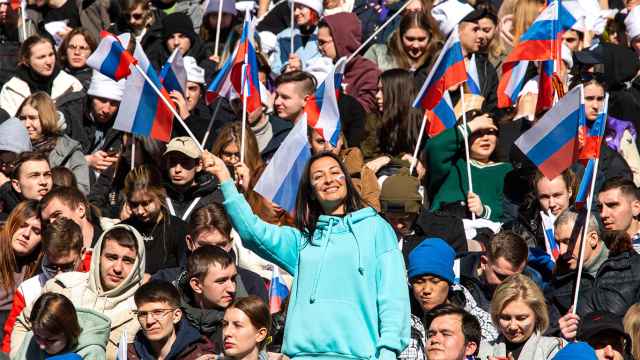Elvira Nabiullina, the chairman of the Central Bank of Russia (CBR) since 2013, is arguably the most internationally renowned official in President Vladimir Putin’s government. In 2019, “Forbes” ranked her as the 53rd most powerful woman in the world. She has a stellar career behind her. Yet today she is one of the many failures of Putin’s kleptocracy.
Nabiullina came from the liberal economic establishment at the Higher School of Economics, where her husband Yaroslav Kuzminov was the rector for nearly three decades, and she belonged to the cohort around the great liberal Minister of Economy Yevgeny Yasin. In the early Putin years, she was first deputy Minister of Economic Development and Trade, widely seen as a competent technocrat. From 2007 until 2012, she served as Minister of Economic Development and Trade, followed by a year as Putin’s closest economic advisor.
In 2013, the highly respected technocrat Sergei Ignatiev decided to retire as chairman of the CBR. Untypically, a vicious public debate ensued between Sergei Glaziev, an old-style communist who favored an extremely loose monetary policy, and many “systemic liberals” who favored a strict monetary policy to keep inflation at bay.
Eventually the liberal camp proposed Nabiullina, the liberal closest to Putin at the time, as chairman of CBR, and she was appointed in the summer of 2013. Her weakness was lack of competence in macroeconomic policy. Another concern was her manner: She is a woman of small stature, sympathetic and soft-spoken. I have never heard her raise her voice. It is difficult to dislike her. The liberals feared that she would be too soft.
The international community has been effusive about Nabiullina. In 2017, the British magazine “The Banker” selected Nabiullina as the "Central Banker of the Year, Europe." In 2018, the International Monetary Fund invited her to give the prestigious annual Michel Camdessus Lecture.
She is celebrated for three major achievements. First, she closed about 500 crooked Russian banks, which her softer predecessor Ignatiev never did. Second, through strict monetary policy, she reduced inflation. Third, she transitioned Russia to inflation targeting with a floating exchange rate.
While these appear to be great achievements, her record is less positive than initially appears.
Although she closed down many bad private banks from 2013-2017, she allowed highly dubious banks to take over the collapsed banks. Some were state owned, such as VTB, but three of the big consolidators were private banks: Bank Otkritie, Binbank & Promsvyazbank. Each of them took over about a dozen failed private banks.
In the fall of 2017, all three banks under Nabiullina’s stewardship — three out of the five biggest private banks in Russia —went under due to poor practices and patently illegal actions. They had to be taken over by the state. The CBR had failed to clean up the banking system.
As a result of this major bank nationalization in the fall of 2017, the state's share of the banking system has steadily increased to about 70%. Under Nabiullina no successful attempt to privatize any state bank has been undertaken. Willingly or not, she has become the undertaker of private bank business in Russia.
In connection with the bank collapses in 2017, several top CBR officials were accused of major corruption, but no one was even prosecuted. In 2018, after the United States exposed Alexander Torshin as a spy, Nabiullina appointed him a deputy governor for three years, presumably because one of the Russian security agencies demanded it.
Nabiullina’s record on Russia’s macroeconomic stability is also uneven. She caused completely unnecessary ruble crises in December 2014 and December 2016, because Putin close associate Igor Sechin needed to pay off Rosneft’s huge foreign debt, which was caused by his expensive purchase of TNK-BP. An independent central bank governor would have refused, but Nabiullina is not independent. She complied, refinancing these large loans, although that led to the destabilization of the ruble on both occasions.
The high interest rates she has set have not been responsible for relatively low inflation — the major currency crises played a significant role in that — and the Russian population has suffered from her extreme austerity policies. For some reason Western economists who condemn Germany’s comparatively mild austerity policy praise Russia’s far more severe policy.
At Putin's behest, Nabiullina built up Russia's international currency reserves to $640 billion, while the Russian people have suffered from her extreme austerity policies. It is clear now that this was not a sensible economic policy but preparation for war.
Putin’s war in Ukraine has finally shaved off the halo from Nabiullina. By building up the large currency reserves, she effectively allowed Putin to start the war. She did not understand that the reserves could be frozen by the West, although it had done so to several other countries, such as Iran and Libya. When the Western sanctions hit on Feb. 28, she lost her nerve and doubled the Russian interest rate to 20 percent, aggravating the financial panic. She closed down all financial markets for one month. When they opened partially, they were heavily regulated. She has also ended the convertibility of the ruble.
Instead of securing macroeconomic stability, she has participated in Putin’s return of the Russian economy to Soviet times and destroyed the CBR. It is widely rumored that she wants to resign, but that Putin has not accepted her resignation. It might be better for all if he did.








